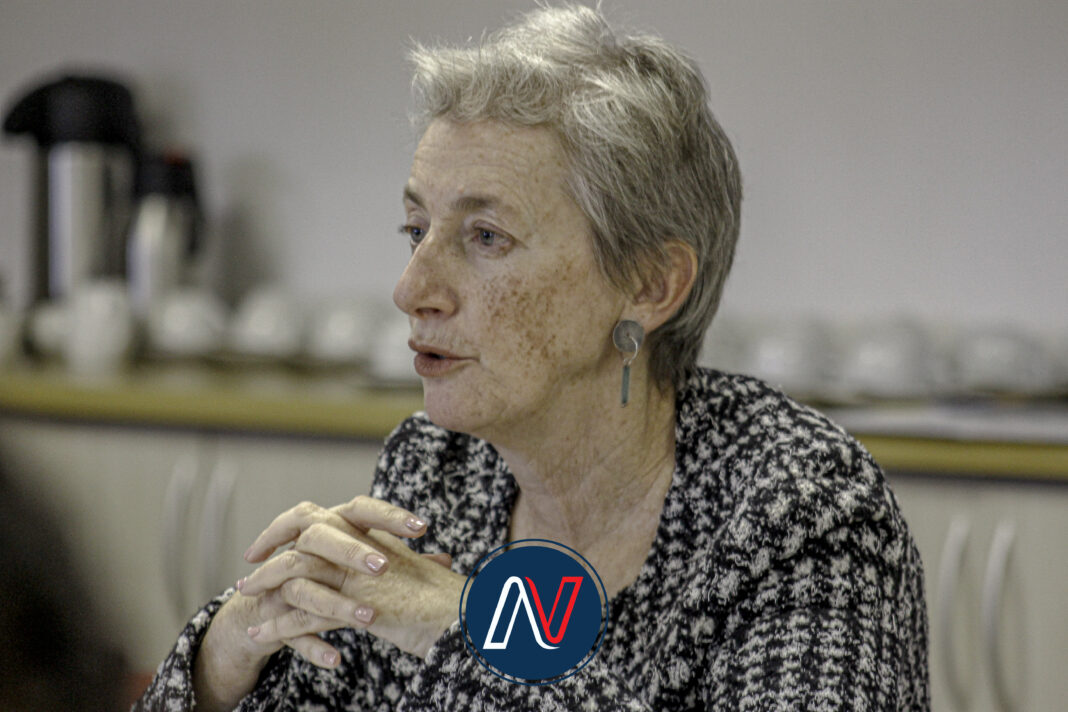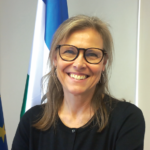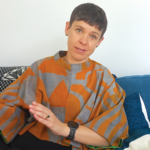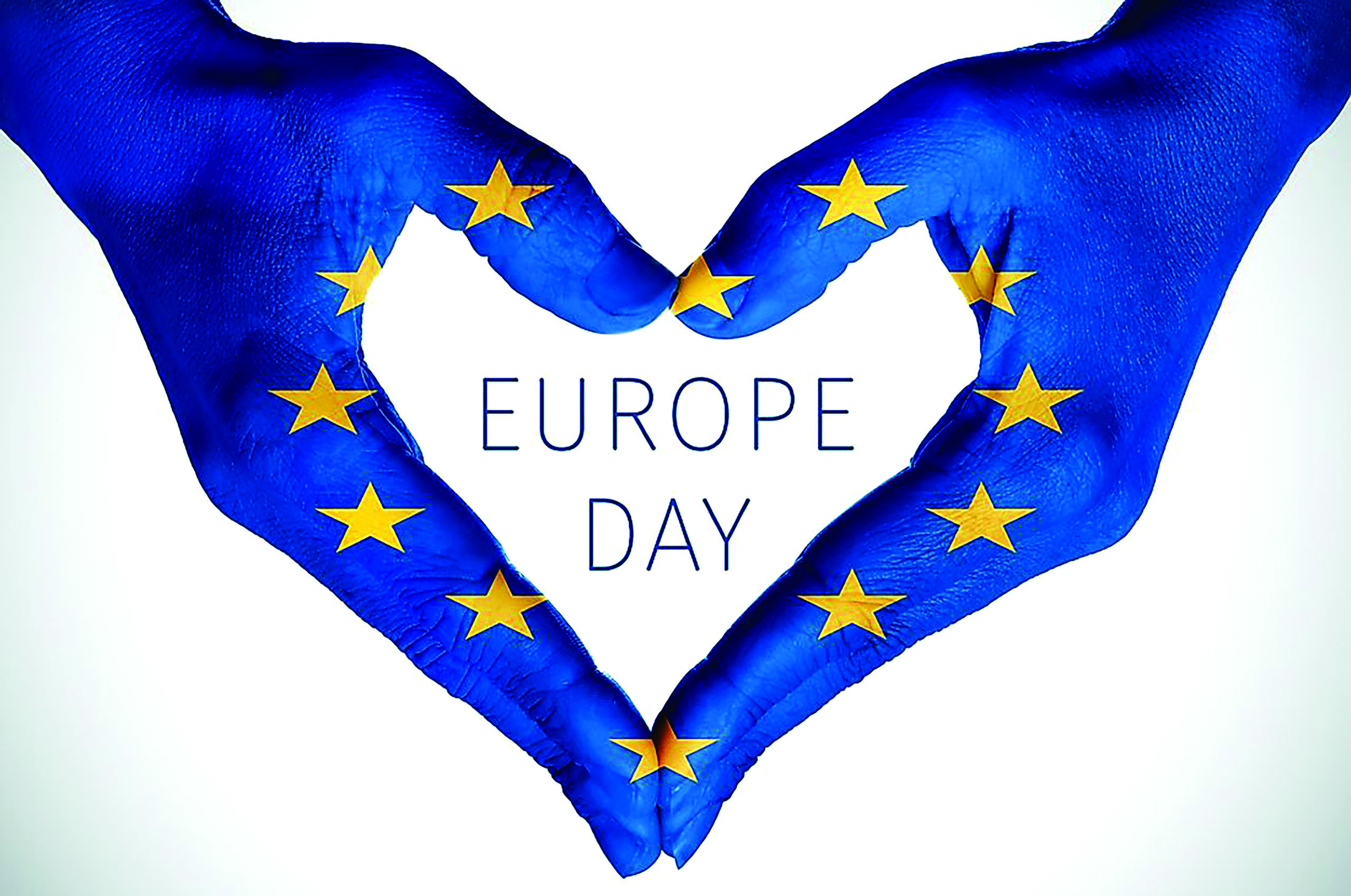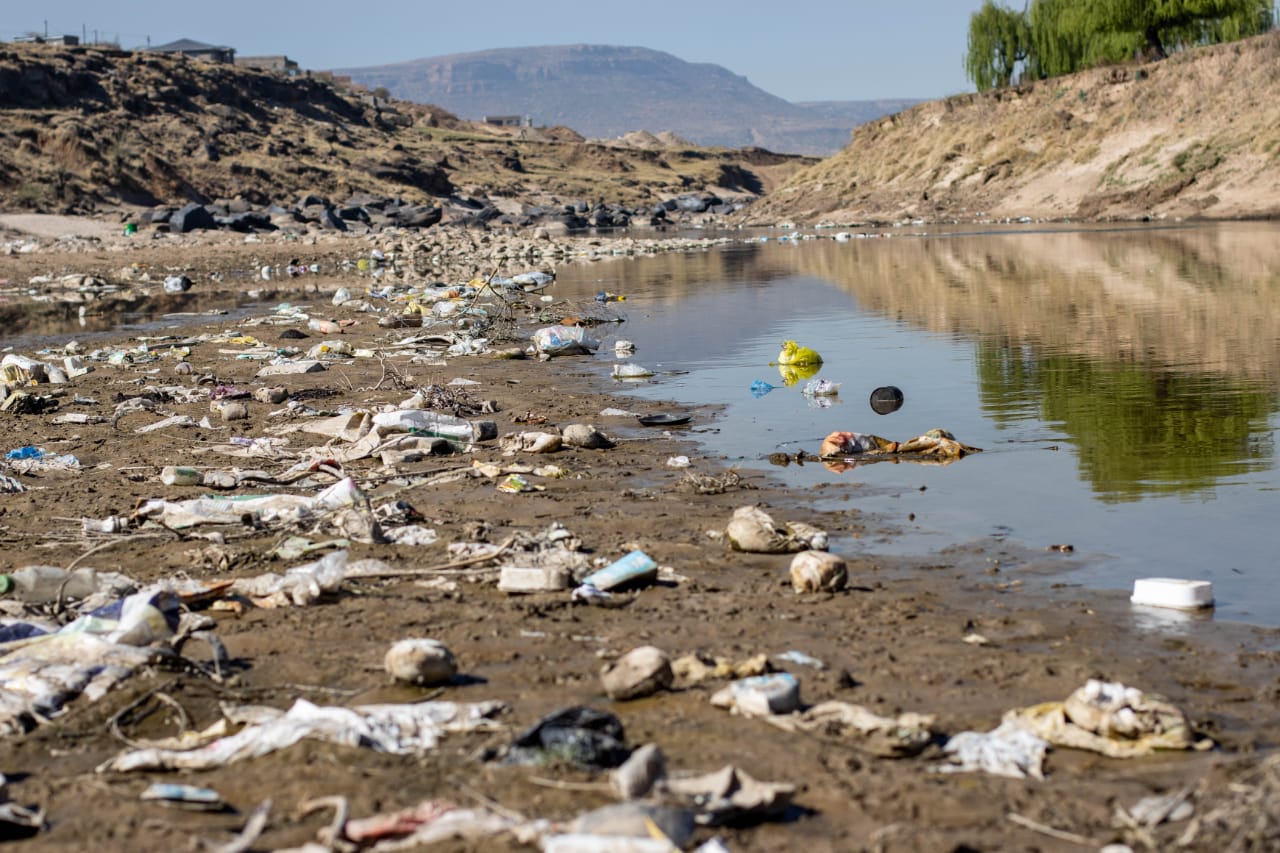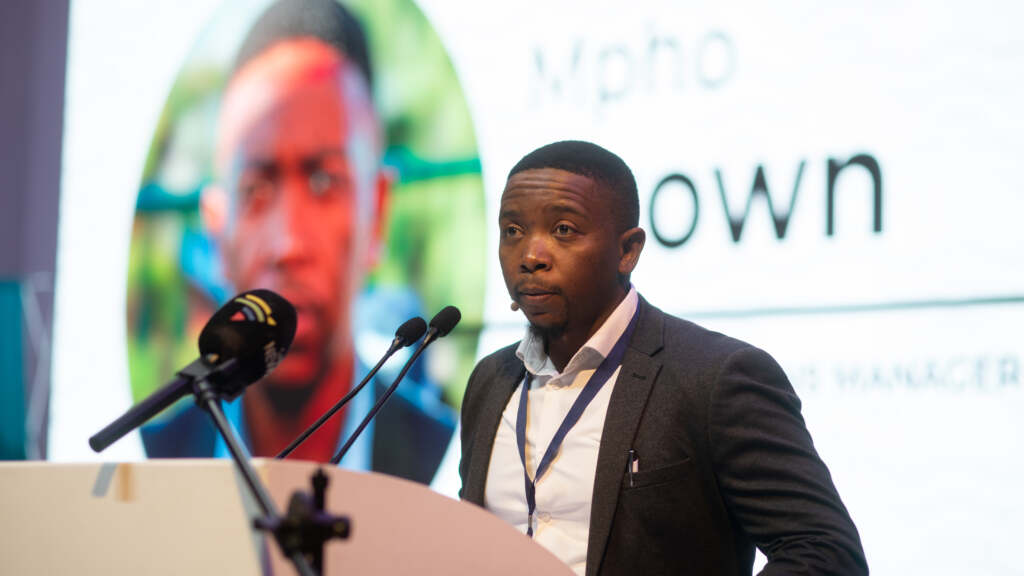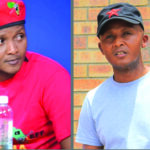The European Union (EU) Ambassador to Lesotho, Paola Amadei, says her tenure has been meaningful for the country. As her tour of duty comes to an end, she sat down with Newsday journalist Thoboloko Ntšonyane to reflect on the EU’s work in Lesotho and how the Delegation, in partnership with the government and other stakeholders, has implemented programs impacting many Basotho, especially in underserved communities. She also shared her thoughts on the importance of fostering synergies between the government, international organisations, and civil society.
Below is an excerpt from the interview.
Thoboloko Ntšonyane (TN): Looking back on your journey as EU Ambassador to Lesotho, how would you describe your tour of duty?
Paola Amadei (PA): It went by so fast, never a dull moment. I enjoyed every bit of it, even amid unavoidable challenges. I am confident that I did my utmost to serve both the EU’s and Lesotho’s interests.
TN: You led a dedicated team at the EU office that helped realise the EU’s mandate. What are you most proud of?
PA: Indeed, the Delegation team, composed in equal parts of EU and Lesotho professionals, is a great asset not only for each EU Ambassador to Lesotho but, more importantly, for the country. My colleagues are deeply committed to delivering results and strengthening relationships. This also extends to the wider Team Europe, which includes embassies of EU member states accredited to Lesotho. They are all keen to maintain and expand relations beyond traditional development cooperation, seeking opportunities for trade, investment, mutual growth, and enhanced partnerships at the multilateral level.
Although the Delegation flies the EU flag alone in Maseru, I always felt the strength of Team Europe’s support and solidarity. I am proud that the EU Delegation has brought Europe, in all its diversity, a little closer to Lesotho. Initiatives such as the European Film Festival may seem small, but they tangibly showcase EU creativity, foster mutual understanding, promote local creators, and encourage cultural exchange.
I also hope that the recent extension of the visa waiver to all EU citizens will encourage more visits to Lesotho and open new channels of interaction at all levels.
We have had many opportunities to highlight the EU’s contribution in the water, energy, and governance sectors. Seeing remote communities access safe water, sanitation, sustainable energy, and public administration services remains a major milestone for the EU in Lesotho, and for me personally.
TN: I imagine it was not always a smooth ride. What were some of the challenges you and your team faced in implementing EU programmes with government and community partners?
PA: It is always a challenge to translate commitments and shared values into concrete actions. During my mandate in Lesotho, this was very true. Lesotho and the EU share values and principles, but the question is always: how do we put them into practice? I am glad that under the Energy Pledge, the EU and Lesotho are partnering to increase sustainable energy production and efficiency. This is more than just words; it aims at a common target that benefits both the planet and our citizens.
Equally, Lesotho and the EU are united in condemning Russia’s full-scale invasion of Ukraine and in seeking a just peace with the necessary security guarantees. For some, the conflict may feel remote, but it has direct impacts on Lesotho, from higher food prices to the weakening of the principles of territorial integrity and sovereignty on which small states depend for survival.
In implementing programmes, we worked tirelessly to respect deadlines, uphold standards, and follow rules so that final beneficiaries could see results. We owe this accountability both to EU taxpayers and to the people of Lesotho. At times, this clashed with a laissez-faire attitude, or worse, with individuals putting personal interests first. Fortunately, we were able to overcome such obstacles and deliver results.
TN: You facilitated Basotho’s participation in the European Union Visitors Programme (EUVP), including MPs, a Principal Secretary, and journalists. Why was this important?
PA: The EU runs many programmes aimed at bringing people of the EU and partner countries closer together. I am very fond of the EUVP, of which you yourself were a beneficiary, because it gives visitors the chance to engage directly with European institutions and the people behind them. It allows participants to form their own impressions and make their own judgments.
Each programme is tailor-made: journalists meet colleagues and communication experts, while MPs meet peers and attend sessions. The programme is intense, ensuring maximum exposure in a short time. We are now eagerly awaiting to see if another Mosotho will be selected in the next round of applications.
TN: You arrived when Lesotho was embarking on its reform process and are leaving just after the 10th Amendment to the Constitution was passed. Can we expect the EU to continue supporting reforms, given that at one stage it withdrew its support?
PA: The EU responded to the government’s call at the start of the reform process, funding the preparatory phase to ensure it was inclusive and thorough. Once draft bills reached Parliament, it was time for the EU to step back and leave space for Lesotho’s democratic institutions.
However, the EU has never stopped supporting the principles underpinning the reforms, namely inclusiveness, transparency, accountability, and fairness. Our programmes continue to advance these values in partnership with our counterparts. For example, under the Inclusive Lesotho programme launched in May, civic education is being promoted to help citizens better understand and exercise their rights. This is just one example among many.
TN: Your work has taken you from cities to some of the country’s most remote villages. What will you remember most about Basotho?
PA: I wouldn’t say I was forced to travel the country, I was eager to do so. Being on the ground allowed me to witness both the needs and the impact of EU support. It was immensely rewarding. Everywhere I went, I was struck by the generosity and openness of the people. Communities organised warm welcomes, offered delicious meals, and sang beautiful songs. The spirit of King Moshoeshoe lives on in the hospitality with which Basotho embrace visitors.
TN: The EU has worked not only with the government but also with partners like UNDP and UNICEF. Why is partnership so central to your work?
PA: EU support is ultimately aimed at the people of Lesotho, especially the most vulnerable, ensuring no one is left behind. To do this effectively, we work with government institutions, civil society, UN agencies, EU member states, and others.
For example, children’s courts were built and equipped through cooperation with the Chief Justice’s office, UNICEF, and World Vision. The Inclusive Lesotho programme involves the Independent Electoral Commission, the Ministry of Education, UNDP, International IDEA, and local CSOs. Our support for Renoka and for market access programmes is implemented by GIZ, which also channels German government resources. These partnerships bring in the necessary expertise to deliver the best results.
TN: Recently, we saw you in Mohale’s Hoek and Botha-Bothe handing over decentralised Ombudsman offices. Why was this important?
PA: Decentralisation is a priority for Lesotho’s institutions, and the EU is glad to support it. It is not an abstract concept but a concrete way of bringing services closer to citizens. The Ombudsman’s decentralisation had been planned for years but lacked resources. Even small offices mark a first step and signal the State’s willingness to be present where citizens need services.
In the coming months, my successor will inaugurate new decentralised offices for the DCEO in the same towns, as well as Legal Aid offices in three other districts.
TN: The EU has supported Lesotho across many sectors, from water and energy to justice and reforms. How do you ensure return on investment?
PA: Accountability mechanisms are built into every programme, regardless of size or implementation method. They ensure that activities are delivered as planned, cost-effectively and transparently. Strengthening oversight institutions such as the Auditor General and the DCEO has been key in ensuring that public services and donor-supported programmes, are properly monitored.
Finally, the media play a vital role in holding institutions accountable, ensuring that results are sustainable over time.
TN: What message do you have for your successor?
PA: Mette Sunnergren, the designated Ambassador, is an experienced and committed professional with a keen interest in Lesotho. I wish her the best of success and trust she will enjoy the full support of all her Lesotho counterparts.
TN: Your parting words?
PA: Time is short, so I will not be able to say goodbye and thank everyone personally. Allow me to use your newspaper to express my gratitude to all those I met during my journey in Lesotho—you made this experience truly memorable.
Summary
- As her tour of duty comes to an end, she sat down with Newsday journalist Thoboloko Ntšonyane to reflect on the EU’s work in Lesotho and how the Delegation, in partnership with the government and other stakeholders, has implemented programs impacting many Basotho, especially in underserved communities.
- Indeed, the Delegation team, composed in equal parts of EU and Lesotho professionals, is a great asset not only for each EU Ambassador to Lesotho but, more importantly, for the country.
- I also hope that the recent extension of the visa waiver to all EU citizens will encourage more visits to Lesotho and open new channels of interaction at all levels.
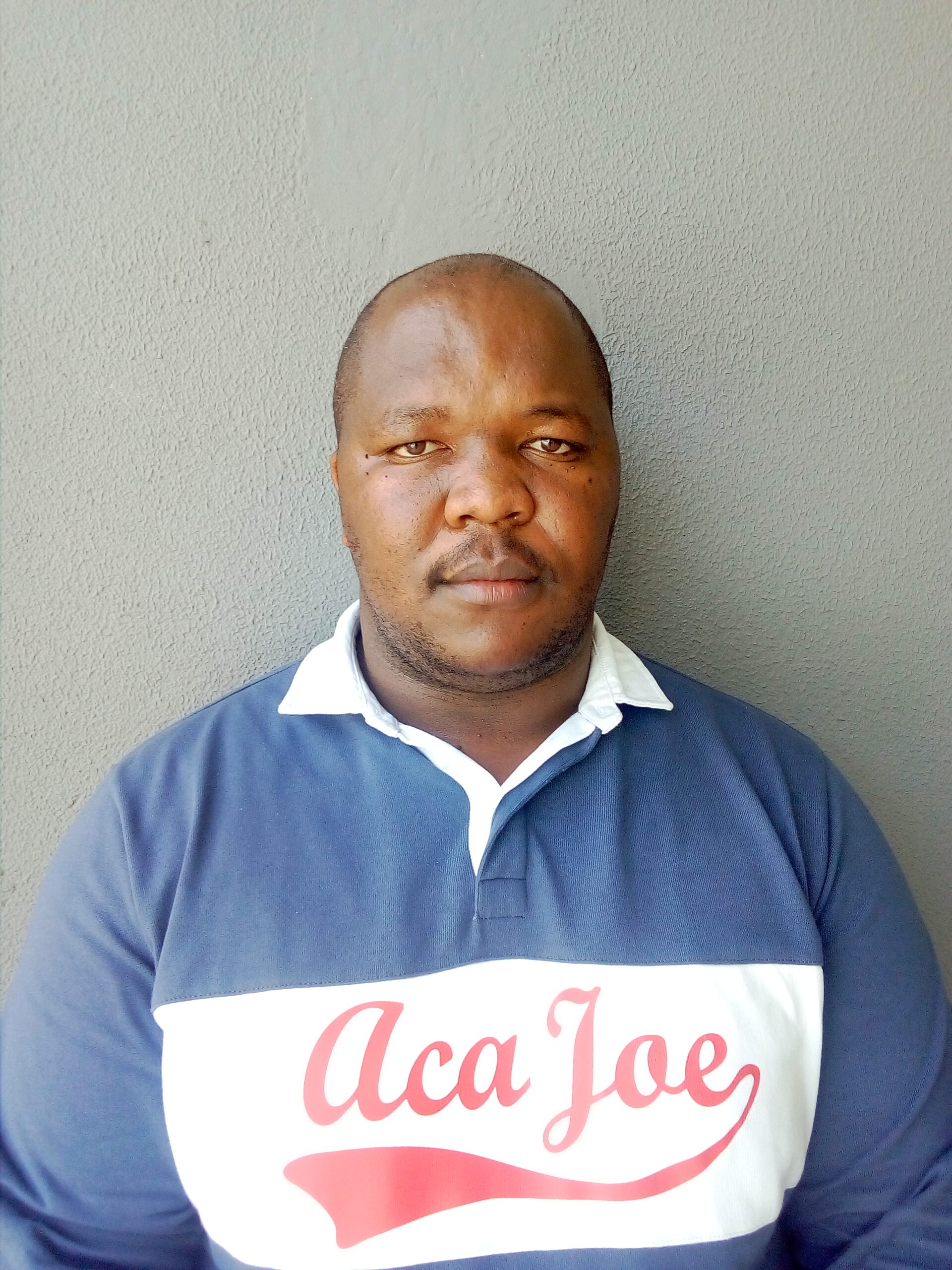
Thoboloko Ntšonyane is a dedicated journalist who has contributed to various publications. He focuses on parliament, climate change, human rights, sexual and reproductive health rights (SRHR), health, business and court reports. His work inspires change, triggers dialogue and also promote transparency in a society.


